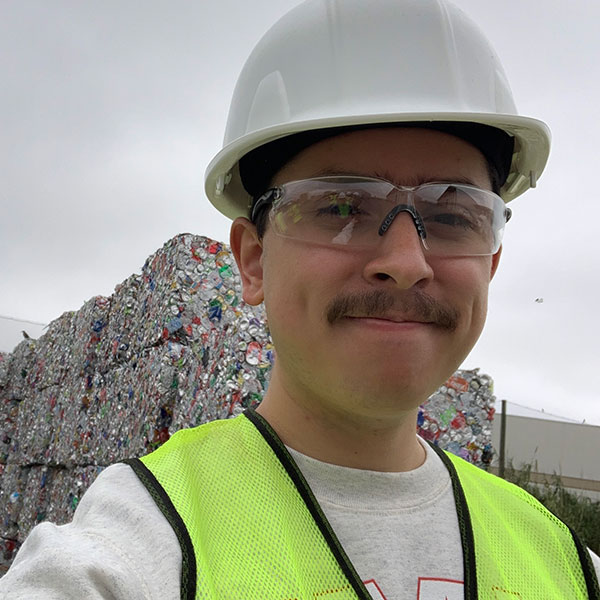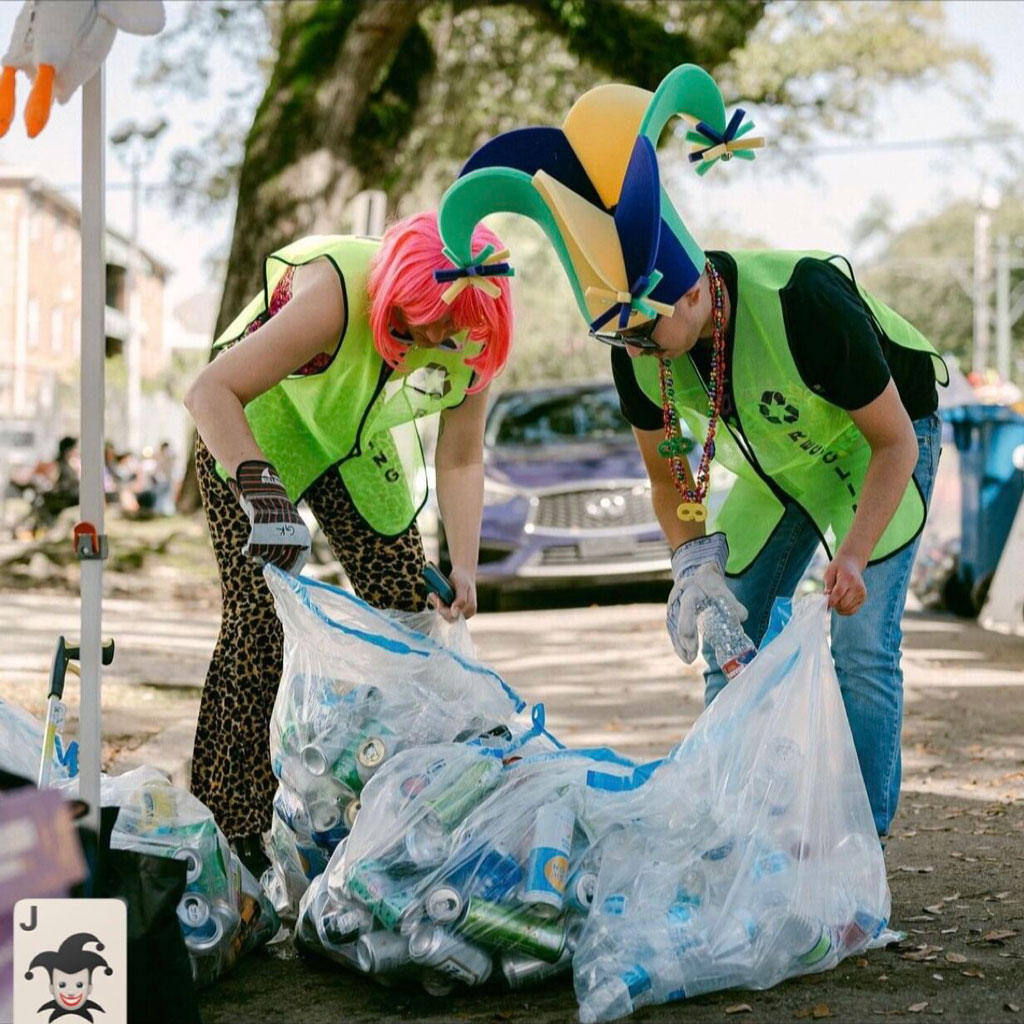Grant Rodriguez Almani
Environmental Justice and Recruitment Coordinator

By Emily Frisan
Meet Grant Rodriguez Amlani, a dedicated advocate for environmental justice and a strategic recruitment coordinator who has honed his expertise in environmental issues, waste management, and the pursuit of a circular economy.
Education: M.A. in Sustainability & Development (Southern Methodist University), B.S. in geography with minors in mathematics and Spanish (University of North Texas), A.A. in general studies (University of Arkansas at Little Rock).
Professional accolades include Circularity23 Emerging Leader, a 2022 Clinton Global Initiative University Fellow, and an Envision Sustainability Professional (ENV SP).
Describe your career path up to your current position, including the range of tasks and responsibilities you oversee.
I graduated in May 2020, which is one of the worst times to graduate, regardless of what your major was. I’d always known I wanted to go into an environmental or sustainability kind of field. Those opportunities got lost, and there were hiring freezes. I went to interviews and then everything fizzled out, which was not unique to environmental work. Everybody kind of dealt with that.
I found my current job by nature of putting myself out there and networking in Dallas. The sustainability circles are close-knit, so once you start going out there and meeting people, it lends itself well to networking and whatnot.

Now, I’m the environmental justice and recruitment coordinator of the U.S. Plastics Pact. Most of my focus is on sustainability, such as waste and recycling. The way it works is we have over 130 member organizations — we call them Activators. These range from cities like the City of Austin or Seattle, to Fortune 500 companies like Walmart, or L’Oreal, or ALDI, or Target, and everybody in between. Anybody that touches plastic packaging in the chain, whether they sell it, make it, or collect it at the end of its life, as well as other nonprofits, also engage.
My role is twofold. The recruitment piece is talking to potential organizations about participating in our work, and then the environmental justice piece is figuring out where environmental justice fits into a just transition to a circular economy for plastics packaging. In the work of sustainability and the circular economy, the justice and equity pieces tend to have been kind of shoehorned in at the end or after the fact. I’m really trying to challenge people to think about that in the design process: the products, the systems, the collection, and what kind of jobs are available.
What geographic knowledge is important and most useful for you in this position?
Something interesting that I’ve seen is that in the corporate sustainability world not everybody has a strong science or geography background. It might be somebody with a business or English degree, which is fine, but it [a degree in geography] helps to have that environmental understanding of how things like climate or ecosystems work and breaking those things down for society and communities.
Separately too are the human-environment interactions. Geography helps us to talk about how people interact to the environment, how people value things. For me, it’s translating that to say, ‘How are people approaching recycling’, ‘How do they think about reuse systems.’ I’m kind of allowing that geography foundation to level up.
When you look back at your education trajectory, how did you discover geography? How did you realize that it connects with your aspirations and your goals in life, maybe as an individual but also as a professional?
I had a winding path in undergrad. I started in construction engineering, then civil engineering, and then kind of just bounced around. I also transferred schools three times. I was at the University of Arkansas and then I was at the University of Arkansas at Little Rock. It was there that, well, I was kind of like, ‘OK, I want to do environmental science.’
It took me five years to graduate and in my fourth year, I took my first geography class with Jess Porter, professor of geography at UA, Little Rock. Unfortunately, they [UA, Little Rock] didn’t have a full program, they just had the minor, so I ended up transferring back home to the Dallas-Fort Worth area, went to the University of North Texas, and finished out my geography major there.
Geography was never on my radar at all. I thought, ‘OK, it’s just maps and GIS’ and then realized, ‘oh, there’s actually a lot more to it.’ It was the perfect fit for what I needed.”
Are there any skills or information that you use for your work that you didn’t obtain through your academic training? If so, how and where did you obtain that?
I feel like there’s a lot that you learn on the job. Even though my first job wasn’t necessarily geography or sustainability focused, there are lots of skills that transfer like emailing, etiquette, and this whole world of virtual work, you know, in a COVID world, learning all of that. You just have to learn by doing.
The other essential thing was not boxing myself in. A lot of geography majors sometimes get this idea of, ‘I only took these classes, so I can only go do this job,’ when in reality, there’s so much you can do and so much you can learn. Even though you didn’t maybe learn it in a classroom, you can still put yourself out there and try to learn it now.
There’s like a lot of different pathways you can go, and the world is your oyster.”
What advice do you have for geography students and other early career professionals interested in a job like yours?
For this job, I probably wouldn’t have been aware of it. I put myself out there and networked with people, connected with them on LinkedIn, and then they happened to post about this job. So don’t be afraid to go talk to people, even if you may not know them. You should still talk to people with a genuine approach and friendliness, not just because they’re going to help you level up in your career.
Don’t be afraid to apply to jobs that don’t explicitly call out geography. If you’re scared about the experience and those types of things, I never had an internship. It’s doable without one. You can supplement that with the kind of story that you can tell about your journey and how you had your experience. Trying to go for volunteering, engaging on campus and organizations, or leading efforts in your community to gain leadership skills is also great. Just put yourself out there.
Learn more about what a degree in geography can do for you by reading more AAG Career Profiles and discover the resources we offer for your professional development journey.